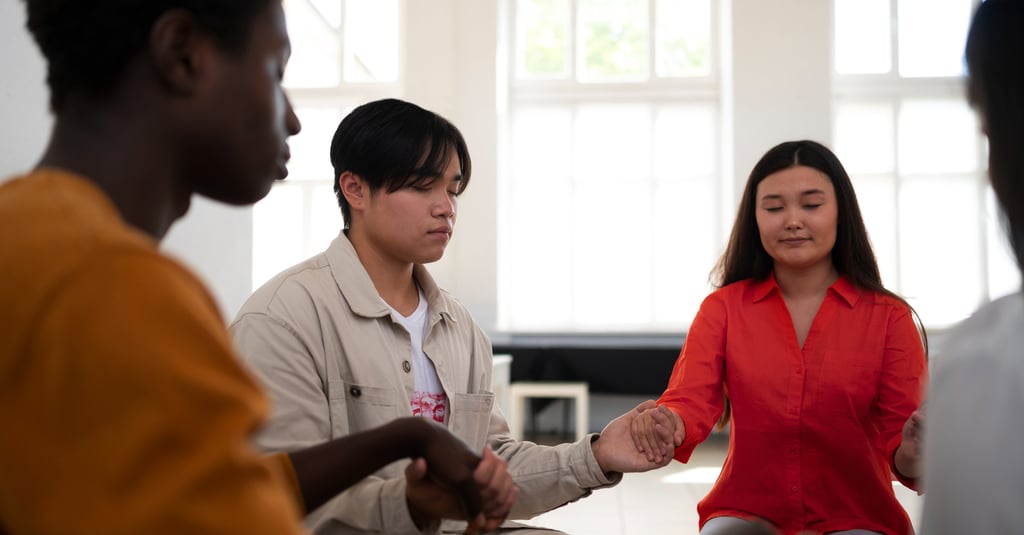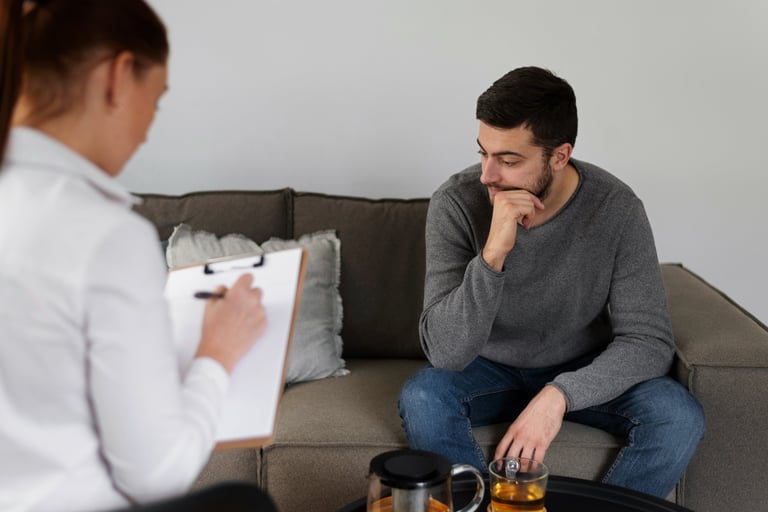4 Essential Steps for Giving Mental Health First Aid
You don’t have to be an expert—just listen, be kind, and help them find the right support. The following are the four simple ways to do that.
1. Listen Without Judgment
Sometimes, just listening to someone who is experiencing mental health problems is the best thing you can do for them. When talking about their feelings, let them express themselves without interruption or attempting to fix everything. Just being there, listening, and not judging can make a big difference in their well-being. A simple “You’re not alone, I’m here” can bring comfort and peace. Let them know they are not alone, and their feelings are valid.
2. Be Kind and Patient
Providing mental health first aid needs kindness and patience because recovering from mental health challenges can be a long and difficult process. Even if you don’t fully understand what they’re going through, still show kindness and empathy for them. Everyone heals at their own pace, so avoid rushing them or expecting immediate improvements. Your continued support, even on tough days, can help them feel safe and valued.
3. Provide Practical Help
Sometimes, only offering practical and helpful assistance can show that you genuinely care. In such cases, small actions can mean a lot. Simple acts such as accompanying them on a walk, helping with household tasks, or assisting with assignments can reduce their stress and show that you truly care. Even offering to run errands, cook a meal, or just check in with a quick text can lift some of their burdens and make them feel supported.
4. Encourage Professional Help
If you find someone's mental health challenges outside your area of understanding, the best thing is to gently suggest or encourage them to seek professional help. Mental health professionals like psychologists, psychiatrists, and school counselors are trained to provide them with the right support. You can help by offering to find resources, assist with making an appointment, or even accompany them if they feel nervous. Let them know that seeking help takes courage, not weakness.
Conclusion
If you can help others by providing mental health first aid, you are already making a positive impact. By working together, we can create a society that values mental health awareness, compassion, and support. It’s normal to feel stressed or overwhelmed, and talking to a trusted person can be incredibly beneficial. We are all on this journey together, and each of us has the power to shape our environment positively. Let’s work together to build a community, where mental health is taken seriously, and seeking or offering help is encouraged.
FAQ: Mental Health First Aid
1. What are the signs that someone needs mental health first aid?
A: Some common signs include withdrawal from social interactions, excessive sadness, mood swings, changes in sleep patterns, loss of interest in activities, and expressions of hopelessness or distress.
2. Can I provide mental health first aid without professional training?
A: Yes! You don’t need formal training to offer support. Simply listening, showing empathy, and encouraging professional help when needed can make a huge difference. However, mental health first aid training programs can provide valuable skills.
3. What should I avoid when helping someone with a mental health crisis?
A: Avoid dismissing their feelings, giving unsolicited advice, or using phrases like "Just snap out of it" or "Others have it worse." Instead, validate their emotions and be patient.
4. How can I help someone feel comfortable seeking professional support?
A: Gently express your concern and suggest professional support in a nonjudgmental way. For example, you can say, "I care about you, and I think talking to a counselor might really help." Offer to help them find resources or accompany them if needed.
5. Is mental health first aid only for serious conditions like depression and anxiety?
A: No. Mental health first aid is useful for a range of emotional struggles, including stress, grief, panic attacks, and even temporary distress due to life events. It’s about offering support when someone is struggling emotionally.




